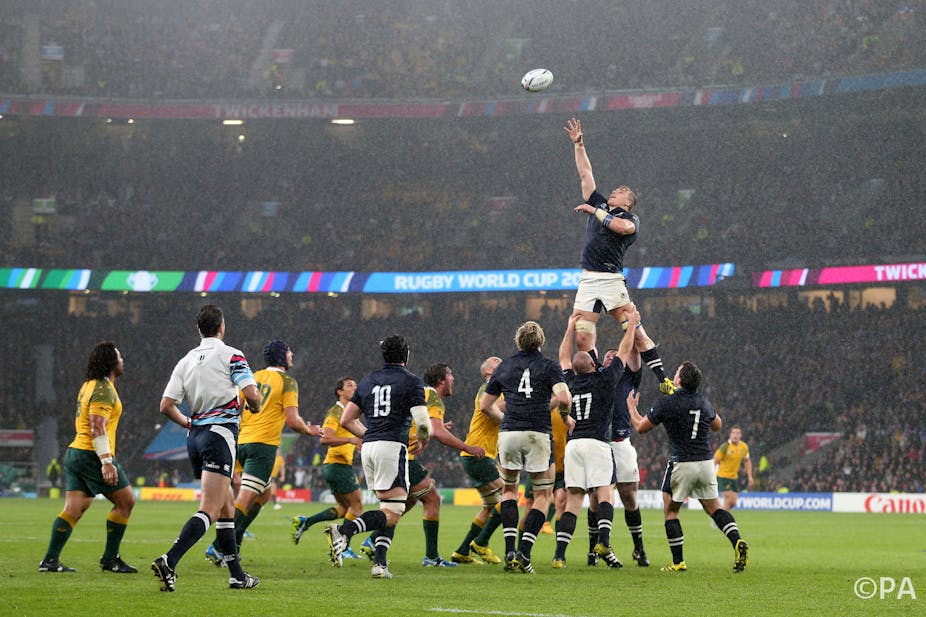So it’s happened again. Scotland lost the rugby to Australia; albeit narrowly, albeit on a disputed penalty in the final minute. But, we find ourselves thinking, it was surely close to inevitable. After all, Australia just about always end up beating Scotland, one way or another. It’s fate.
Yet the fact that we feel inexorably attracted to this conclusion tells us more about human psychology than it does about rugby. One powerful psychological force is hindsight bias: in retrospect, whatever actually happens starts to seem close to inevitable.
If, for example, a doctor is asked whether a patient has disease A or B, in the light of some not entirely decisive symptoms, they may suggest that the patient has an 70% probability of A, and a 30% probability of B. Sometime later, once the true diagnosis is known (it is indeed the case of A), the doctors is asked what they thought the probabilities were at the time of diagnosis: now, the doctor estimates that there original probability was, say, 80% for A, and just 20% for B.
This finding doesn’t apply only to doctors and diagnosis; it applies to all of us, and to just about any uncertain judgement at all. Once we know the answer, we feel we knew it all along. So now we know that Australia did win, we have the feeling that they were always going to win, and that we suspected that they would, deep down, all along. Even if it was by just a point.
Yet, of course, this sense of inevitability is an illusion – the inevitable random “jitter” in close refereeing decisions just happened, on this particular occasion, to go against Scotland rather than the other way around.
Beware the streak
Another psychological factor making us feel, in retrospect, that Australia was bound to win, is our excessive belief in the reality of “streaks,” whether in sport, in gambling or anything else. Football teams go on winning and losing streaks; golfers have streaks of sensational putting, where they seem to hole out from all over the green; gambling, of course, is notoriously and often disastrously streaky. Sometimes, we feel, a team, or golfer, or a gambler is “hot” — and sometimes not.
Hang on, though – the idea of being “hot” in gambling, at least, surely must be an illusion. Assuming the roulette table is genuinely random, there can’t really be times when a player is somehow mysteriously in tune with fortune (and keep winning), and times where this mystic connection somehow breaks (they start losing). It is surely just a matter of pure chance.
So what about sport? The most heavily researched area is the high-scoring game of basketball, where players, coaches, and commentators alike talk of the elusive “hot hand” striking a player who suddenly can’t miss – interspersed with troughs when the player goes cold.

It turns out, though, that there is little evidence that the “streakiness” observed in basketball is any greater than would be expected if players score with a constant probability throughout the entire game. Or, even where this evidence for such streaks (and recent studies suggest there may be) these will still be far too subtle for observers to detect reliably.
So what seem like periods where we see the player is “hot” or “cold” will mostly reflect little more than random fluctuations: if you spin a coin for a while, you’ll soon get a streak of heads or a streak of tails, just by chance.
It is likely, then, that we shouldn’t read too much into the results of the Australia-Scotland game. Yes, historically Australia is stronger, and indeed, Australia has won 18 of the last 20 games between two sides.
As it happens, though, in most of those games Australia won easily, especially during the period of 16 consecutive wins; but the past four games have been shared two apiece. So there was no inevitability about Sunday’s result. It just feels that way.

